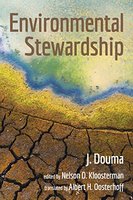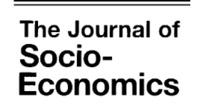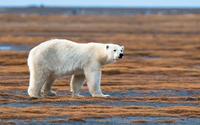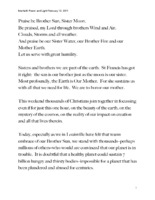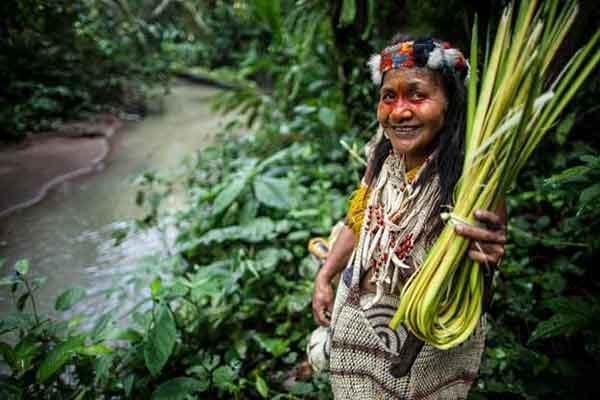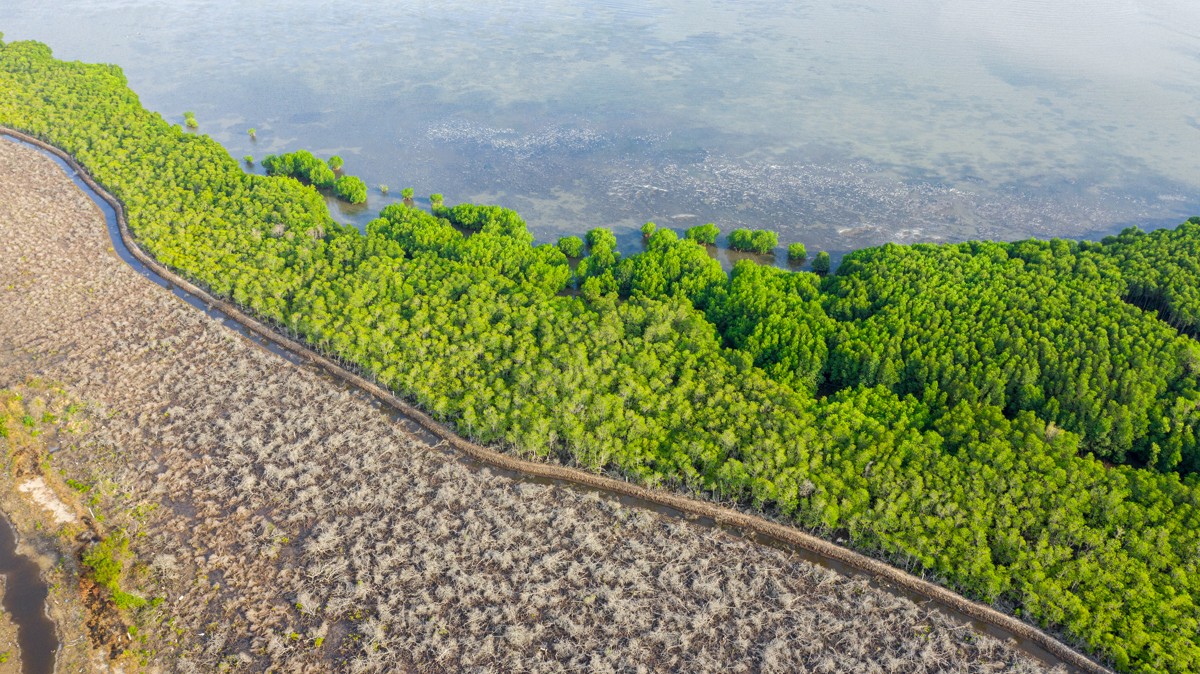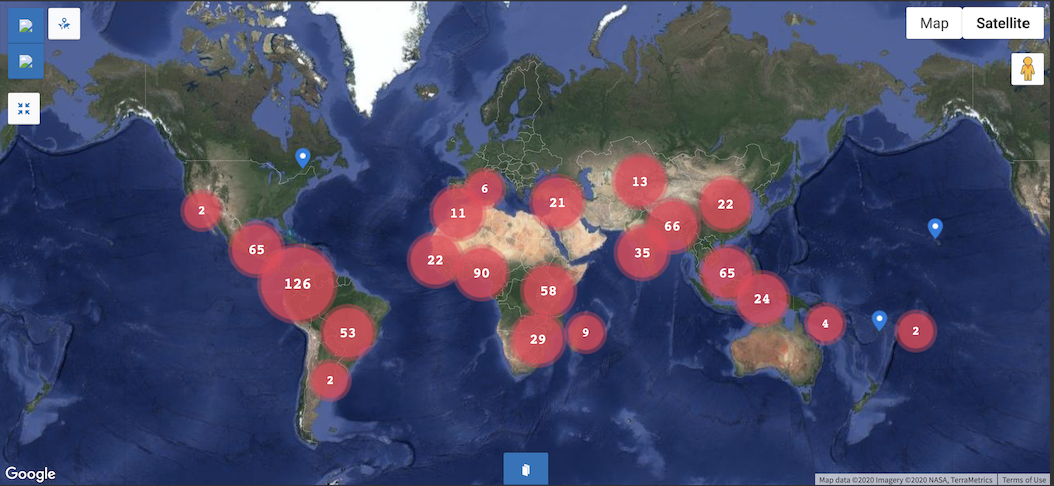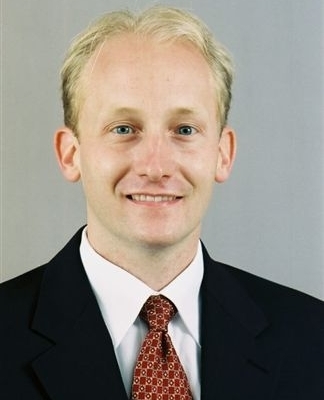Search
179 items
-
Existentialism an the Ecological Crisis
This segment of The Philosopher's Zone with David Routledge (on the Australian Broadcasting Corporation) focuses on the importance of existentialism in modern times. Specifically, how existentialism can help us understand current relationships between the self and others, as well as with nature. Likewise, the podcast’s contributor, Dr Dalia Nassar points out that existentialism implies a sort humanism (as Sartre argued) that connects each individual to all of humanity through their actions. It is the fact that each of our actions can affect one another is why the existentialists place so much emphasis on how we act. Furthermore, the podcast extends this to the ecological crisis by explaining how this radical humanism can inform how we make environmental decisions. The important point here is that we can derive environmental values based on the inherent freedom that humans have, there is a constant need for action. As the interviewer explains in the podcast, the individual determines the moral future of humanity and nature. Thus, each person has a moral obligation to transcend the current situation and make better choices for the environment. Likewise, there is a special attention to art and literature as a mode of connection, to hopefully shape others moral and environmental values. Therefore, existentialism provides a framework (much like religion) for guiding our actions based on a mutual care for the environment. Finally, I should note that the key points of the podcast (concerning the environment) starts at the 18-minute mark, while the latter half provides background knowledge on existentialism. -
Resources for Preaching & Speaking on Climate Change
The resource gives information for preachers and other religious figures to use when talking about climate change. It starts by giving reasons for preaching about climate change and why it is important for us now and in the future. It also gives facts from scientists on the climate which mentions the aspects of climate change such as the causes and effects on the environment, and what humans can do to help. The article then gives biblical themes related to climate change and also gives advice for religious leaders to overcome possible barriers when preaching. -
Ancient Judean Dates
A date tree planted in Ketura, Israel from 2000 year old seeds found at an archeological site in the Judean wilderness has finally bore fruit earlier this month (September 2020). The harvest was hailed a modern miracle of science. “In these troubled times of climate change, pollution and species dying out at alarming rates, to bring something back to life from dormancy is so symbolic,”... Date palms were praised in the Bible and the Quran, and became symbols of beauty, precious shade and succulent plenty. -
Engaged Organizations: Global Oneness Project
The Global Oneness Project was founded in 2006 as an initiative of Kalliopeia Foundation, and is focused on education aimed a planting seeds of empathy, resilience, and a sacred relationship to our planet. They are passionate about the power of stories and offer a rich library of multimedia stories comprised of award-winning films, photo essays, and essays as well as companion curriculum and discussion guides focused on world culture, social justice and sustainability. -
What Karl Marx has to say about today's environmental problems
Ted Benton, a Professor of Sociology at the University of Essex, writes about how Marx's theories can be applied to modern environmental issues such as climate change. He talks about how Marx's ideas about capitalism relate to current exploitation of nature, and specifically about soil degradation which was an issue during the 1860s when Marx was alive. He also includes problematic parts of Marx's attitudes towards nature, such as his praise of increased productivity of land that may have inspired Stalin. -
Environmental Stewardship
This book goes into detail about how the Christian religion goes about environmental stewardship. They look at how bible passages talk about preserving the Earth and the morals we should have surrounding it. It dives deep into how science interacts with human interaction with the Earth and the damage that we have done to Earth, as well as what we should do to correct ourselves. -
How Buddhist monks in Ladakh are fighting climate change
Buddhists Monks in the Himalayas are taking a stand to climate change. On Earth Day 2018, thousands of people came together in the village of Yerat to plant trees. The region is rapidly losing glaciers, causing a shortage in water supply to the villages in the area who rely on snowmelt for water. The volunteers were inspired to participate due to their devotion to His Holiness Kyabgön Chetsang Rinpoche and his vision for "a more verdant and organic Ladakh." -
Seeing true nature: Buddhism and the environment
John Worthington-Hill describes how Buddhism can encourage environmental awareness and sustainability. Embracing individuality is our disconnection from the natural world. In order to live in unity with the earth, we must find the 'middle way' (a buddhist morality based on self-discipline). "Self-centeredness is the great illness from which all imbalance, insensitivity and abuse ultimately stem – an illness directly linked to the Buddha’s ‘three poisons of greed, ill-will and delusion’. These poisonous mentalities seep into the collective consciousness and are instilled in the norms and structures of culture and society, helping to direct how politics and economics deal with the environment." "Environmental destruction is therefore an outer manifestation of an inner affliction. If our thoughts are polluted, then our actions will be polluted too, and so will their consequences." -
Five Years After Speaking Out on Climate Change, Pope Francis Sounds an Urgent Alarm
This article covers Pope Francis's reaction to the world governments responses to climate change. The Pope writes to unite people through religion in an effort to bring awareness to the movement. The article details how the church is divesting in fossil fuel companies. The article also focuses on the political divide and how it affects people's views on the climate crisis. -
Overpopulation and the Lifeboat Metaphor: A Critique from an African Worldview
Many scientists have warned that the earth is nearing overpopulation or has already reached its carrying capacity. Garret Hardin proposed the lifeboat ethics metaphor to address this crisis and proper resource distributions. Okyere-Manu comments that this metaphor does not take into account the African political and cultural worldview. Hardin's metaphor is also reliant on inequality which disproportionately affects vulnerable communities. -
Himalayan Institute
Founded in 1969 by the great teacher and humanitarian, Swami Rama, the Himalayan Institute acts on the basis of yoga tradition and Eastern spirituality. Through the living connection to an ancient wisdom tradition of the Himalayan Masters, and the guidance of spiritual head Pandit Rajmani Tigunait, the Himalayan Institute seeks to serve communities across the globe of those who seek to live their spiritual values. The institute provides resources for anyone seeking spiritual wellness such as yoga and meditation training, local retreats and seminars, and domestic and international excursions, frequently taking the form of a trek through the Himalayas. The Himalayan Institute strives for sustainable living in partnership with the community in Honesdale and also in their projects in India and Africa- providing sustainable living, jobs, and farming in several different communities. -
Religion and animal welfare: Evidence from voting data
This article, written by Julio Videras, works to analyze the factors that contributed to a 2002 ban on farming practices in Florida that were deemed cruel to pigs. Not only is religion taken into account (specifically Catholicism and Evangelical denominations), but political and socioeconomic factors are also considered. Videras argues that political affiliation and socioeconomic factors play more of a role in people's opinion of the ban than religious factors do. -
The “Green Team”, Community Synagogue of Rye
The “Green Team” at the Community Synagogue of Rye in Westchester, New York works to create projects that focus on sustainability within their congregation, and in the surrounding community. Through renewable energy initiatives, community supported agriculture, youth involvement, group nature hikes, and other related projects, the Green Team approaches environmental stewardship through the lens of Jewish teachings and scripture. They work closely with the Westchester Jewish Greening Group, a related religious environmental organization, in efforts to bring more sustainable, “greener” practices to the Westchester County community. Through these activities and initiatives, the Green Team works to live out the value of Tikkun Olam - ‘repairing the world’. -
FORUM2020: Science, Spirituality, the Climate Emergency and Our Future
Presented by The Temple of Understanding, this two-day event features over forty international speakers including Indigenous leaders, religious and spiritual visionaries, and youth environmental activists. The Forum will consist of three 30-minute panels addressing climate emergencies and action plans. The first panel is the "State of the Earth Panel" and addresses climate from different perspectives. The second is "Women in Leadership on the Environment Panel" and the third is "Intergenerational Wisdom & Our Future Panel" where action-based programs will be discussed. "Over forty international speakers will be offering their wisdom and perspectives through keynote addresses, diverse panels, inspiring prayers and sacred music at FORUM2020 online" -
The Wisdom of Houseplants
There has been a recent rise in the popularity of houseplants. This resource relates aspects of tending to houseplants to different ways you can be more mindful about your own life. Through caring for the houseplants, this web page reminds you to be adaptable, to be patient, and to expand yourself. While also additionally reminding the reader that letting go and paying attention to your physical health are both key in positive personal growth. -
15 Green Religious Leaders
This article contains a list of spiritual leaders that openly advocate for the protection of the environment. The 15 names are listed then followed by a description of their faith and views on the natural world. The article portrays that throughout different religions, many leaders are starting to encourage a sort of "eco-gospel." -
The Sierra Club Efforts to Protect Wildlife
The Sierra Club is a nonprofit Environmental organization based in the United States and was created in 1892. Among their many environmental initiatives they plan on conserving wildlife. The Sierra Clubs goal is to protect 30% of the natural world by 2030. Not only will preserving the land wildlife it will also provide people with clean water, clean air, and climate stability. This article describes the Sierra Clubs involvement with Endangered Species Day. -
Dalai Lama's 10 Rules for Success
This video is the Dalai Lama speaking of how to calm ones mind as well as how to connect with the universe through inter connection of self and creation. -
Brother Sun, Sister Moon
Pastor Michael Mernagh delivered this sermon that relates the planets and elements to family members. He does this to encourage his audience to treat the environment as family. Father Michael passionately describes how humans have been harming the environment and advocates for his audience to change their attitude in order to make better choices. -
Model Environmental Justice Projects
This booklet summarizes 35 model environmental justice projects that were highlighted by the National Religious Partnership for the Environment in 1997. Out of more than 100 projects identified and researched within NRPE denominational networks, these 35 were chosen as the most representative and robust. To raise awareness of their work, the local project leaders each wrote letters to Secretary of the Interior Bruce Babbitt and Vice President Al Gore to accompany a meeting of senior religious leaders in Washington, DC, raising a witness to the environmental justice work of these congregations. -
Indigenous peoples and local communities offer best hope for our planetary emergency
Indigenous peoples steward 80 percent of the world’s remaining biodiversity, yet their voices are often excluded from decision-making. Moreover, such environmental defenders remain a vulnerable group that is troubled by intimidation and torture. In this article, the authors cover a few organizations, such as Nature for Life Hub and Youth4Nature, established to empower and defend the voices of indigenous peoples, local communities, and the youths. -
Muslims for Progressive Values
MPV (Muslims for Progressive Values) establishes and nurtures vibrant progressive Muslim communities. We do this by creating opportunities for religious discourse, volunteer and community activities, and cultural events bringing together the arts, spirituality, and social activism.
Since our inception, we have secured DPI and ECOSOC Special Consultative Status at the U.N., and a founding member of the Alliance of Inclusive Muslims, or AIM, an umbrella organization spanning 13 countries and 17 cities.
MPV is a progressive Muslim voice on contemporary issues. We voice our perspectives with policy briefs, by participating in civil discourse, engaging with the media and government entities, and by partnering with both Muslim and non-Muslim progressive organizations.
MPV promotes theologically-sound frameworks for Islamic liberalism. We seek to reinvigorate the Islamic tradition of ijtihad (critical engagement and interpretation of sacred texts) and intellectual discourse. We do this by collaborating with religious scholars and developing position papers on theological issues that are accessible to a wide audience.
Muslims for Progressive Values has been in existence since 2007. Quietly and diligently, we have been building our progressive community, one city at a time, and now one country at a time. Since its inception, MPV has expanded to include communities in Los Angeles, San Francisco, Washington DC, Atlanta, Columbus (OH), New York, Chicago, Boston, Minnesota and The Netherlands. -
Applying the hard lessons of coronavirus to the biodiversity crisis
In this article, Jamison Ervin, Manager of Nature for Development at UNDP, summarizes key lessons we have learned during the Covid-19 pandemic and how these can be applied to environmental protection efforts. -
Nature-Based Solutions Database
As a part of the Equator Initiative and the UNDP (United Nations Development Programme), the Nature-Based Solutions Database connects communities through sharing thousands of viable eco-solutions from 500+ communities across five continents.
Explore the Solutions Database to learn how outstanding local communities and indigenous peoples around the world are making possible the achievement of the UN Sustainable Development Goals through nature-based actions.
-
Profile: Jerry Freewalt
Jerry Freewalt is Director of the Office for Social Concerns of the Catholic Diocese of Columbus, Ohio. In this capacity, he serves as an educator and advocate to further the understanding of the Church’s social justice teachings. Jerry joined the office in 1995 as the respect life coordinator. Jerry also administers the respect life program, parish social ministry, rural life, jail and prison ministry, advocacy for persons with disabilities, and other education and advocacy efforts.






